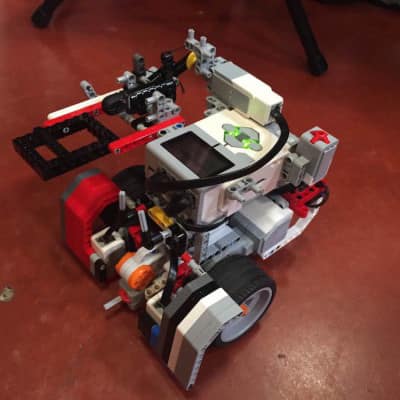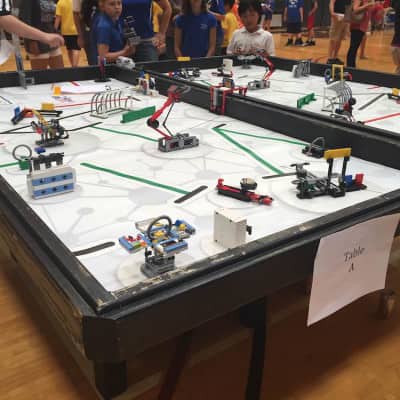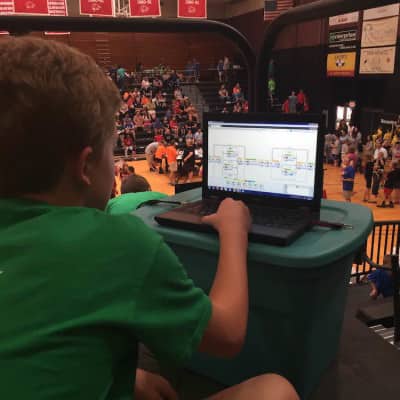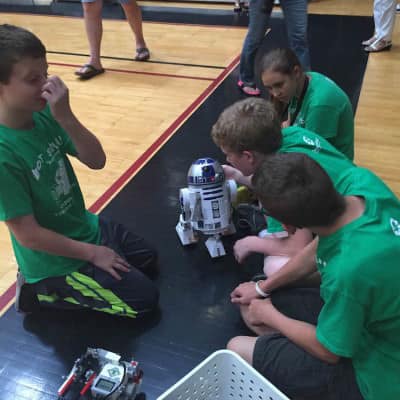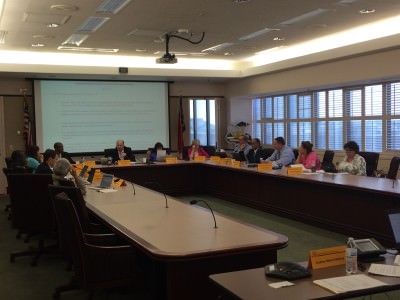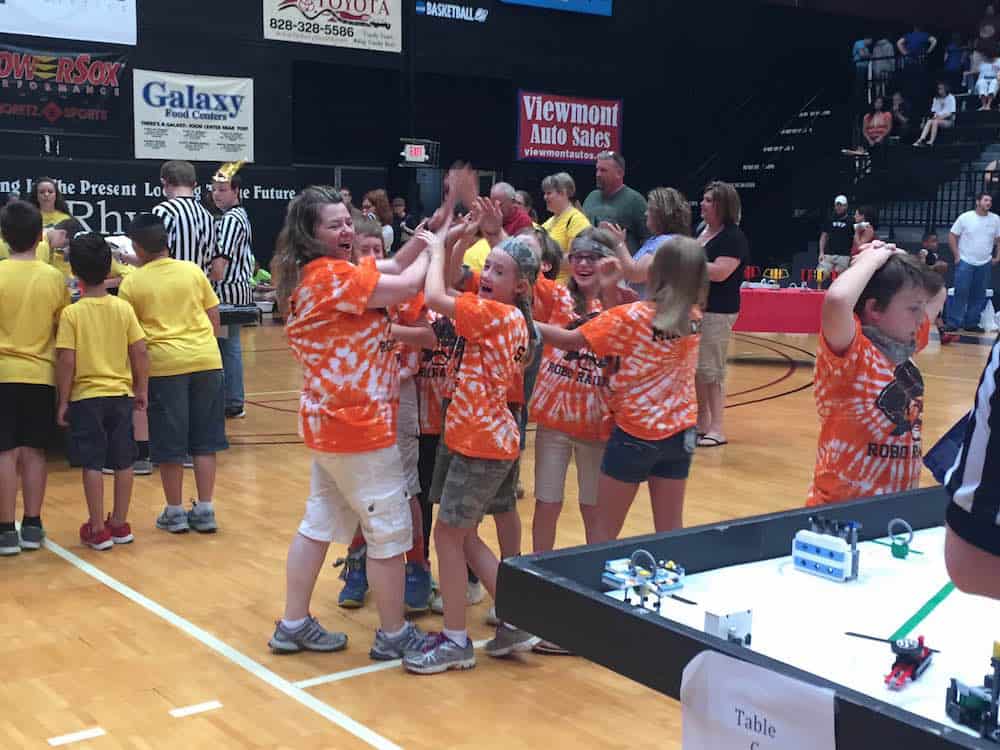

Early on a Saturday morning at Lenoir Rhyne University’s Shuford Gymnasium, a crowd of cheering parents lines the bleachers. “La Bamba” plays over the loudspeakers as a section of the crowd cheers ecstatically for another goal scored by their children’s team. The children are even more excited, jumping up and down, whooping in a mob on the court. However, this is not just another game of soccer or basketball, and not just any other team member scored this goal.
This is RoboFest 2014-2015, and this goal was scored by a robot.
RoboFest is a tournament hosted annually by CyberKids Robotics, a nonprofit organization located in Lenoir County, NC. Each year, elementary and middle school children selected to represent their school attend a short summer camp and then spend the next year preparing for these competitions. Using Lego kits and Lego’s Mindstorms programming, teams with names like the “Ninjaneers” of Glen Alpine Elementary School and the “Techno-Tomahawks” of West Lincoln Middle School are assigned the task of building a robot and programming it a series of tasks.
These tasks, designated by a set of rules published annually by Lego for their First Lego League, are themed around a unifying principal that changes each year. This year’s theme, World Class, features “missions” (tasks for the team’s robot to accomplish) with names such as “Search Engine,” in which the team’s robot must select the correctly colored ring, “Reverse Engineering,” in which the robot must duplicate a model built by the referee using pre-designated parts, and “Thinking Outside the Box,” in which the robot must remove a piece from a blocked area. Each of the tasks is awarded point values. The team is given three, two-and-a-half minute rounds for their robot to achieve the highest score it is able. Alongside the robotic aspect of the competition, each team also gives a presentation on an innovative solution to answer the question “How can we improve the way that someone learns?” for a subject of the students’ choice.
Along with the emphasis that the competition places on creativity and out-of-the-box thinking, there is also a focus on the First Lego League’s first rule: Gracious Professionalism. “You are competing hard against PROBLEMS, while treating PEOPLE with kindness and respect – people from your own team, as well as other teams,” explains the FLL’s rulebook.
Brenda McGuinn, the coach for Tyro Middle School’s Bot Squad, spoke highly of this philosophy. “You want to win, but you want everyone else to do the best they can do,” McGuinn explains, understating how central sportsmanship and collaboration are to the program. She further shared a story of a previous competition in which students from an opposing team had once spent their own competition time trying to find her team working batteries so they would still have a chance to participate.
“I think the biggest benefit of this is they learn how to problem solve and learn to work together as a team,” said McGuinn. “[The competition] takes something kids are naturally interested in and it makes them learn how to work behind the scenes, instead of just playing a game.”
The members of the bot squad agreed. Team member Ethan Fulbrite added, “It used to be megablocks, just building things, but now we can build things like this,” beckoning to an elaborate, two-foot long tool that resembled a driveshaft the team had designed.
“Now I know how to actually make things work.”


